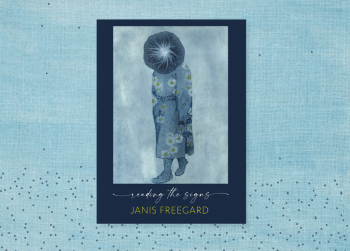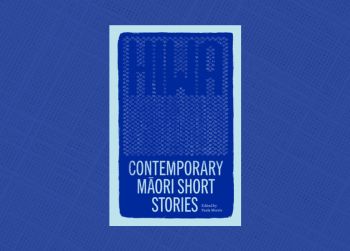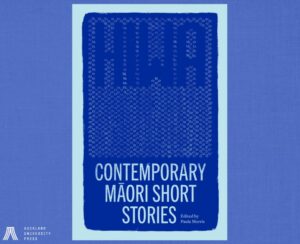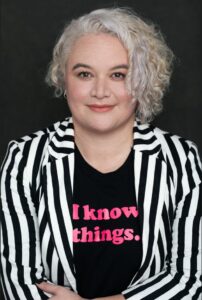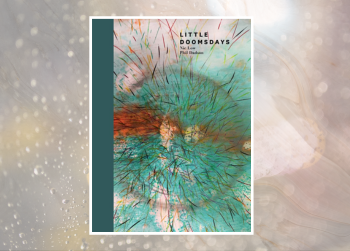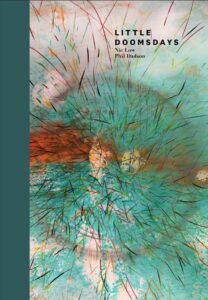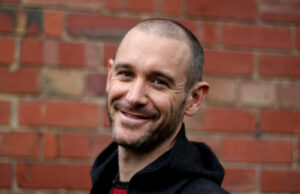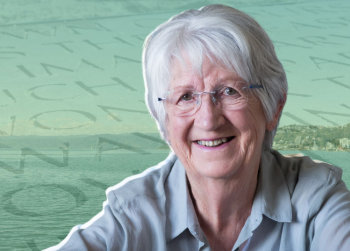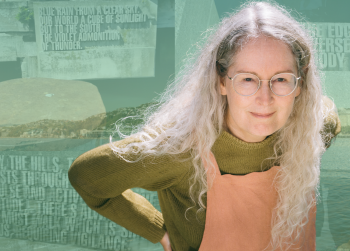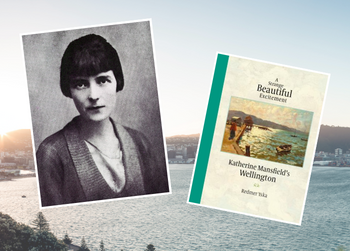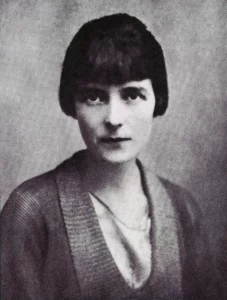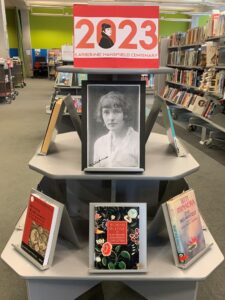Listen to local authors and Wellington Writers Walk Committee members Philippa Werry and Maggie Rainey-Smith chat about Knox’s work along our author-lined waterfront. Knox’s words are subtly embedded underfoot, on the boardwalk between Shed 13 and Michael Tuffrey’s giant kina sculpture at Kumutoto Wharf. Capturing the light and shining up at passersby, the sculpture pays tribute to the significant contributions Knox has made to New Zealand’s contemporary writing scene.
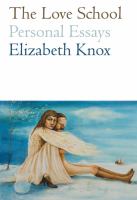 The love school : personal essays / Knox, Elizabeth
The love school : personal essays / Knox, Elizabeth
“Culled from two decades of nonfiction writing from an original and much-celebrated author, these essays tell the story of important moments and experiences in Elizabeth Knox’s life. From her first literary efforts as a child to the jobs she took to support herself so she could write, these writings provide a brilliant and personal look into the life of an internationally successful writer. Displaying the vivid and rich qualities for which Knox is renowned, these works reveal the process through which Knox creates as well as the purpose behind her work.” (Catalogue)
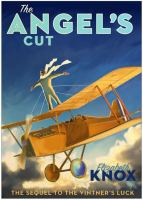 The Angel’s Cut / Knox, Elizabeth
The Angel’s Cut / Knox, Elizabeth
“A sequel to her award-winning bestseller The Vintner’s Luck, The Angel’s Cut is an evocative and wildly romantic new novel from Elizabeth Knox. Boomtown Los Angeles, 1929: Into a world of movies lots and speakeasies comes Xas, stunt flier and wingless angel, still nursing his broken heart, and determined only to go on living in the air. But there are forces that will keep him on the ground. Forces like Conrad Cole, movie director and aircraft designer, a glory-seeking king of the grand splash who is also a man sinking into his own sovereign darkness. And Flora McLeod, film editor and maimed former actress, who sees something in Xas that no-one has ever seen before, not even God, who made him, or Lucifer, the general he once followed — Lucifer, who has lost Xas once, but won’t let that be the end of it.” (Catalogue)
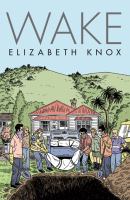 Wake / Knox, Elizabeth
Wake / Knox, Elizabeth
“One sunny spring morning the Tasman Bay settlement of Kahukura is overwhelmed by a mysterious mass insanity. A handful of survivors find themselves cut off from the world, and surrounded by the dead. As they try to take care of one another, and survive in ever more difficult circumstances, it becomes apparent that this isn’t the first time that this has happened, and that they aren’t all survivors and victims-two of them are something quite other. And, it seems, they are trapped with something. Something unseen is picking at the loose threads of their characters, corrupting, provoking, and haunting them. Wake is a novel about what it really means to try to do one’s best, about the choices and sacrifices people face in order to keep a promise like “I will take care of you.” It is a novel that asks: What are the last things left when the worst has happened? and about extreme events, ordinary people, heroic compassion-and invisible monsters. An invisible…” (Catalogue)
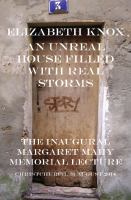 An unreal house filled with real storms / Knox, Elizabeth
An unreal house filled with real storms / Knox, Elizabeth
“Elizabeth Knox discusses the process of writing her memoirs as a recipient of the Michael King Fellowship.” (Catalogue)
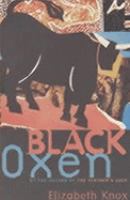 Black oxen / Knox, Elizabeth
Black oxen / Knox, Elizabeth
“Black Oxen is the story of Carme Risk’s pursuit of her beautiful and not quite human father through two worlds and three changes of identity. In her forties, in the year 2022, Risk has entered narrative therapy. Her memories and her father’s journal take her from the Eden of her earliest childhood to dusty, poor Lequama, a Latin American country, where she and her father become involved with the slightly mad young leaders of a recent revolution and where everyone seems to practice black magic – and, finally, to life in Northern California, where Risk, still in thrall to her elusive father, is now the widow of Lequama’s most notorious torturer.” (Catalogue)
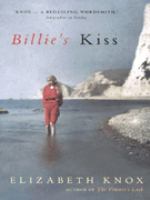 Billie’s kiss / Knox, Elizabeth
Billie’s kiss / Knox, Elizabeth
“In the spring of 1903, a ship explodes as it docks on a remote Scottish island, drowning many of the passengers and crew in the icy waters of the harbor. Young, pink-haired Billie Paxton is among the only survivors. Clumsy, illiterate, and suddenly alone, she will not say why, moments before the explosion, she leapt from ship to shore – and so she falls under the immediate suspicion of her fellow passenger, Murdo Hesketh, who is determined to discover the truth behind the ship’s fate. As she attempts to come to terms with an uncertain future, Billie acquaints herself with the eccentric inhabitants of Kiss Castle: the enigmatic Lord Hallowhulme, who owns the island; his beautiful wife and worldly children; Geordie Betler, a spinsterish gentleman’s gentleman; and the fierce, fair-haired Murdo Hesketh, who inspires in Billie equal amounts of rage and passion.” (Catalogue)
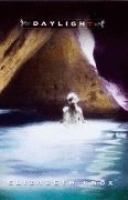 Daylight / Knox, Elizabeth
Daylight / Knox, Elizabeth
“Set on the Mediterranean coast from Avignon to Genoa, Daylight begins with the discovery of a body in a flooded cave. Is she connected to the story of Martine Raimondi, a WWII resistance heroine and martyred nun?” (Catalogue)
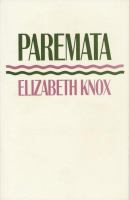 Paremata / Knox, Elizabeth
Paremata / Knox, Elizabeth
“Paremata summons up with diamond-bright particularity of detail, a place, the coastal suburb north of Wellington, and a time, the summer of 1969. It is a powerful and affecting story about transition, about codes being broken, sexuality, the vulnerability and the toughness of the charged world of children. Around this world move the figures of the adults, sometimes shadily – as in the case of the mysterious Pavel – and always on the outside.” (Catalogue)
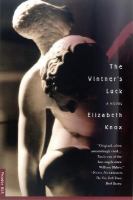 The vintner’s luck / Knox, Elizabeth
The vintner’s luck / Knox, Elizabeth
“One summer night in 1808, Sobran Jodeau sets out to drown his love sorrows in his family’s vineyard when he stumbles on an angel. Once he gets over his shock, Sobran decides that Xas, the male angel, is his guardian sent to counsel him on everything from marriage to wine production. But Xas turns out to be a far more mysterious character. Compelling and erotic, The Vintner’s Luck explores a decidedly unorthodox love story as Sobran eventually comes to love and be loved by both Xas and the young Countess de Valday, his friend and employer at the neighboring chateau.” (Catalogue)
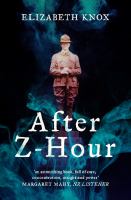 After Z-hour / Knox, Elizabeth
After Z-hour / Knox, Elizabeth
“Stranded by a South Island storm, six people usurp the stillness of an old house. As they tell the fragments of their story, a seventh voice responds: a young New Zealand serviceman who died in 1920 soon after his return from France. As the storm deepens, the hauntings of the mind and the hauntings of the house become one”–Back cover.” (Catalogue)
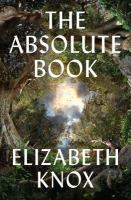 The absolute book / Knox, Elizabeth
The absolute book / Knox, Elizabeth
“Taryn Cornick believes that the past is behind her – her sister’s death by violence, and her own ill-conceived revenge. She has chosen to live a life more professional than personal. She has written a book about the things that threaten libraries – insects, damp, light, fire, carelessness and uncaring. The book is a success, but not all of the attention it brings her is good. There are questions about a fire in the library at Princes Gate, her grandparents’ house, and about an ancient scroll box known as the Firestarter. A policeman, Jacob Berger, has questions about a cold case. There are threatening phone calls. And a shadowy young man named Shift appears, bringing his shadows with him. Taryn, Jacob, Shift – three people are driven towards a reckoning felt in more than one world.” (Catalogue)
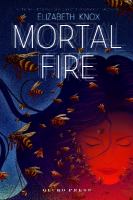 Mortal fire / Knox, Elizabeth
Mortal fire / Knox, Elizabeth
“When sixteen-year-old Canny of the Pacific island, Southland, sets out on a trip with her stepbrother and his girlfriend, she finds herself drawn into enchanting Zarene Valley where the mysterious but dark seventeen-year-old Ghislain helps her to figure out her origins”–Publisher information. Suggested level: secondary.” (Catalogue)



